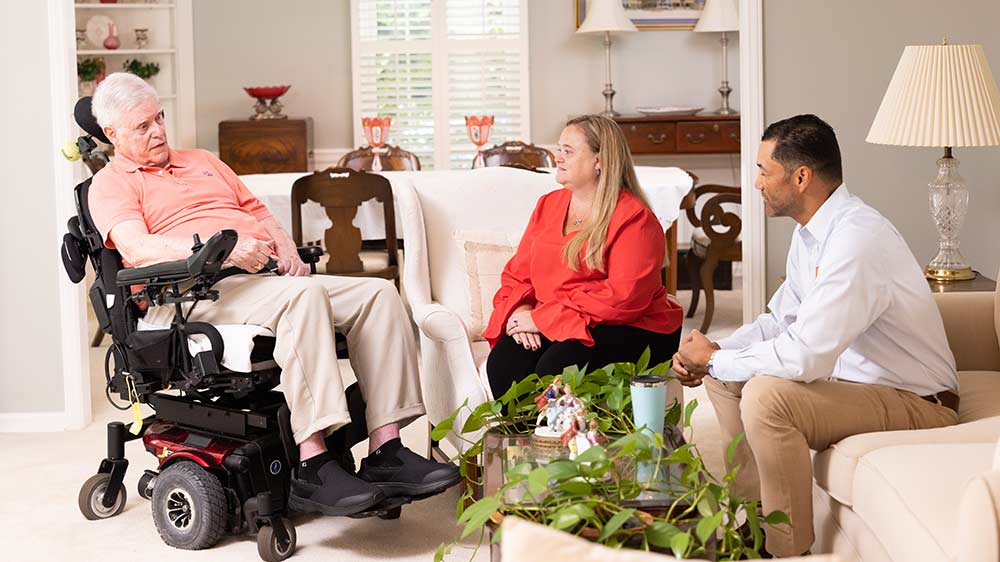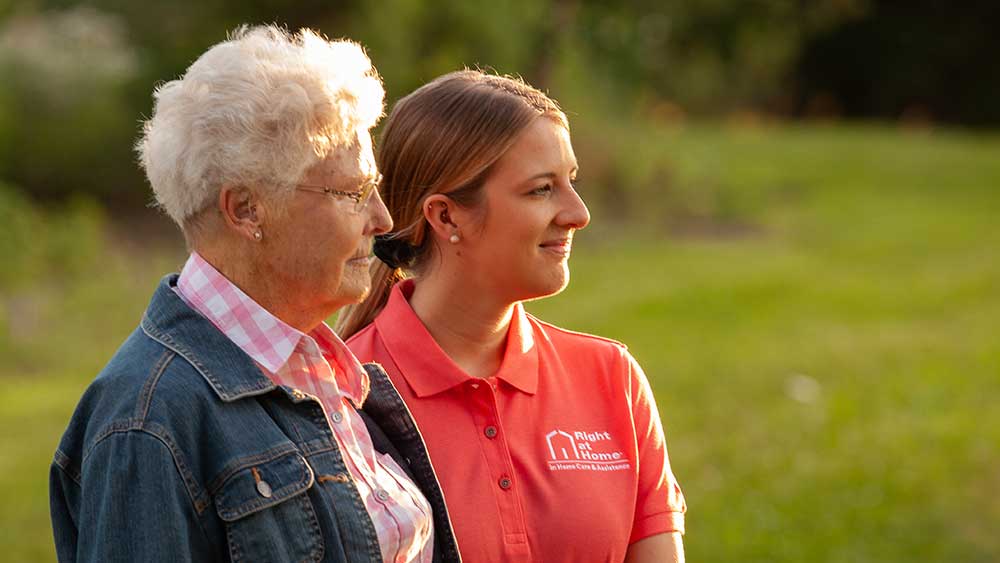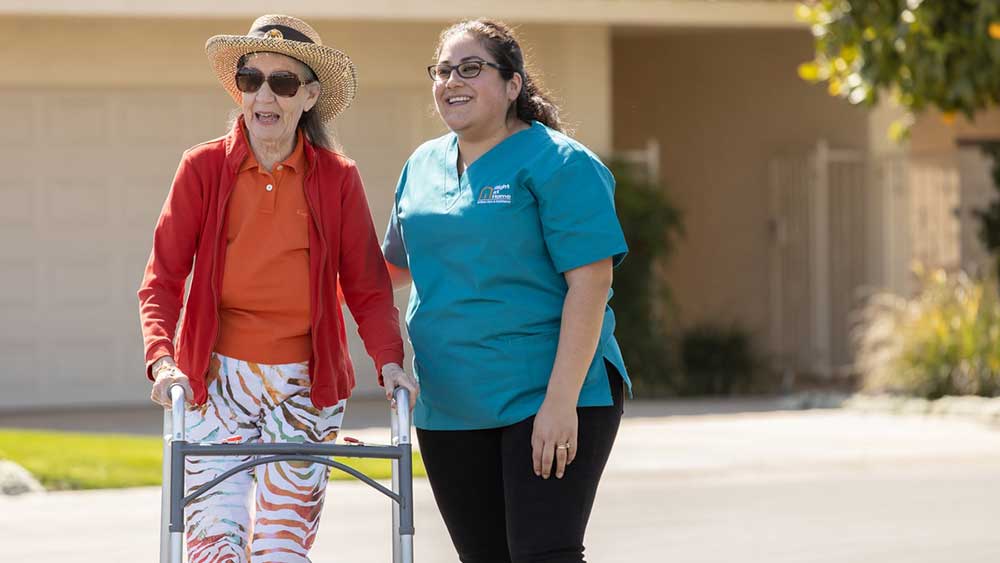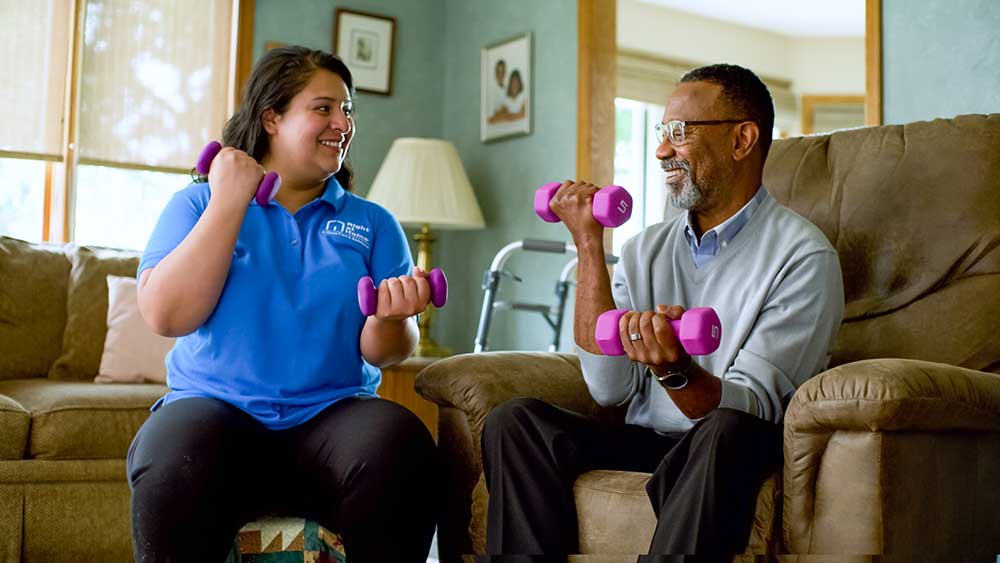

Elderly Stroke Survivors: Advice for the Caregiver
May is National Stroke Prevention Month. Every 40 seconds, someone in the United States has a stroke, and every 3.5 minutes, someone dies of one. Strokes impact just under 800,000 people per year.
If you are caring for an elderly loved one who has had a stroke, the first step is to understand what a stroke is and the challenges your loved one is facing.
What Is a Stroke?
A stroke, sometimes called a brain attack, happens when blood flow to an area of the brain is blocked or when a blood vessel in the brain bursts. There are two main types of strokes: ischemic and hemorrhagic. An ischemic stroke occurs when a clot blocks the flow of blood to the brain. A hemorrhagic stroke occurs when a blood vessel ruptures, preventing blood flow to the brain. Strokes typically affect one side of the body.
Physical Challenges Resulting From a Stroke
The physical effects of a stroke can vary. These include:
- Muscle weakness – Your loved one may have muscle weakness, making walking, moving their arms, or holding objects difficult. They also may be more likely to trip or fall and have difficulty rising from a sitting position.
- Foot drop – If you notice that your loved one lifts one foot higher than usual or swings their leg outward when walking, they likely have a condition called foot drop due to muscle weakness in the foot and ankle that causes the toes to catch on the ground when walking.
- General fatigue – Stroke survivors often are fatigued and quickly tire even after resting.
Cognitive Outcomes of a Stroke
The cognitive effects of a stroke can also vary. These include:
- Memory loss – This makes it hard to recall names, faces and events.
- Communication problems – Aphasia affects an individual’s ability to verbally communicate their wants and needs. A loved one may find it hard to make a simple request. Conversations are often difficult.
- Vascular dementia – This can affect reasoning, planning, judgment, memory, and other thought processes. It is common among people who have experienced a left-hemisphere stroke.
- Sound sensitivities – Stroke survivors can experience auditory overload and be sensitive to sound. A crowded room or more than one conversation at the dinner table can cause the person to fidget or act impulsively.
Your Role as a Caregiver
Caring for a senior who is living with the effects of a stroke can be a daunting responsibility. However, information can mean power. Here is how to assess your role.
The first step to take is assessing your physical capabilities. Are you strong enough to help the person get up after a fall? If you aren’t, whom can you call to help? Perhaps a neighbor would be willing? Does a relative live nearby? If your loved one is unconscious or bleeding, always call 911.
Are you able to help bathe the person? Showers are best, as bathtubs require strength to help the older person in and out of the bathtub. Is the shower equipped with handrails to provide for your safety and theirs? You can purchase a portable seat if the shower does not have one. Make sure the shower is slip-proof.
Once you have determined your physical capabilities, you can move on to assessing your other responsibilities. Following are a few examples:
- Monitoring and managing the person’s medication – Stroke survivors often have memory issues and will forget if they have taken their medication. A simple solution is a pill organizer available at your pharmacy. You also can mark your calendar for refill reminders.
- Understanding your loved one’s financial situation – If you are responsible for bill-paying, know their bank accounts and passwords. Are they receiving Social Security, a pension, or VA benefits? What rehabilitation costs are covered by their Medicare and health insurance?
- Making sure the person is eating properly – Many stroke survivors are overweight and have diabetes. The right diet can reduce weight and lower blood sugar. Always keep regular medical appointments.
- Keeping a regular schedule for at-home rehabilitation activities.
Caring for the Caregiver
Taking care of an older loved one who has had a stroke is a priority. However, your No. 1 priority should be you. Caregiving can cause both physical and mental health problems. When you feel stressed, tired or overwhelmed, reach out for help. Let your family and friends know how you’re feeling and ask them to lend a hand by taking over some responsibilities. Or, consider getting respite care from Right at Home so you have time to recharge and be at your best to help your loved one.
How Right at Home Can Help
Right at Home offers useful information on dealing with the physical and mental health issues of caregiving and helpful advice for senior caregivers. We also provide a monthly e-newsletter full of tips, information and advice about caring for your aging loved one. Sign up to receive your copy! Or, reach out to your local Right at Home office for more information.







